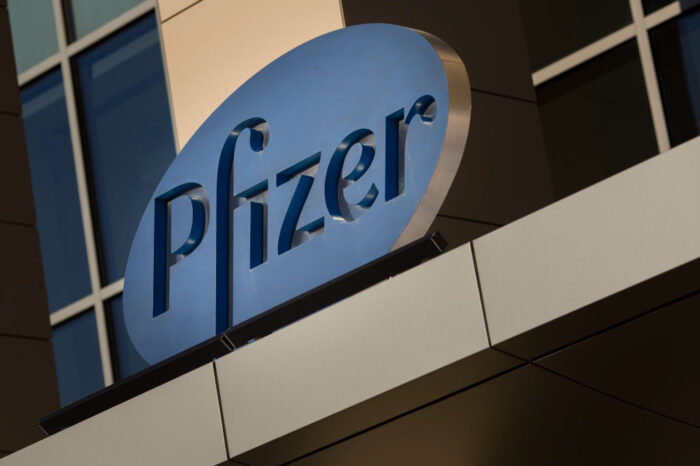
Pfizer to buy sickle cell disease biotech Global Blood Therapeutics in $5.4B deal – MedCity News

Pfizer has reached a $5.4 billion deal to buy Global Blood Therapeutics, a company with one commercialized therapy for sickle cell disease and a pipeline of additional drugs in various stages of development for the blood disorder.
According to financial terms announced Monday, Pfizer is paying $68.50 for each share of Global Blood, which represents a 7.2% premium to Friday’s closing price and a more than 100% premium to the biotech’s stock price a week ago, before speculation about Pfizer acquisition started circulating. The Wall Street Journal reported last Friday that Pfizer was in advanced talks to buy South San Francisco-based Global Blood.
Global Blood’s drug Oxbryta, is one of the few FDA-approved treatments for sickle cell disease, and the only one that addresses a root cause of the disorder. The inherited condition leads hemoglobin, the oxygen-carrying protein in red blood cells, to become rigid and misshapen, which in turn makes the normally round and flexible red blood cell rigid, taking on a sickle shape. These rigid blood cells clog and impede blood flow and the delivery of oxygen to tissues. Complications include vaso-occlusive crisis (VOC), in which the blocked blood flow and oxygen deprivation sets off an inflammatory response from the body.
Oxbryta is a small molecule designed to bind to hemoglobin and block polymerization, the process in which hemoglobin inside red blood cells clump together leading the cell to take on a sickle shape. The FDA approved the drug in 2019. It accounted for $194.7 million in revenue in 2021, according to Global Blood’s annual report. In the first half of 2022, the company reported $126.7 million in Oxbryta sales, a 46.3% increase compared to the first half of last year.
Oxbryta, a once-daily pill, is a chronic treatment taken potentially for the patient’s entire life. The drug could eventually face competition from one-time treatments in the form of genetic medicines in clinical development by Bluebird Bio, Sangamo Therapeutics, and Vertex Pharmaceuticals. But in the meantime, Global Blood is developing a next-generation version of Oxbryta, code-named GBT601. This small molecule, which comes from Global Blood’s labs, is designed to work the same way as Oxbryta, but with potentially greater efficacy at a much lower dose.
Global Blood has advanced GBT601 to the Phase 2 part of a Phase 2/3 clinical trial. The most advanced program in the pipeline is a polymerization-blocking drug called inclacumab. This monoclonal antibody is designed to target P-selectin, a protein that is known to reduce the incidence of VOC. That Global Blood drug, licensed from Roche in 2018, is currently in Phase 3 testing. Dealmaking has brought Global Blood additional drug candidates for sickle cell disease. Last year, the company committed up to $353 million for the rights to two Sanofi small molecules in preclinical development.
Though sickle cell disease is relatively rare in the developed world, Pfizer estimates that there are about 4.5 million people globally who have the disorder and more than 45 million people who carry the sickle cell trait. The disorder disproportionately affects those with sub-Saharan African ancestry, though it can also occur in other ethnic groups. In addition to its U.S. approval, Oxbryta has regulatory nods in the European Union, United Arab Emirates, Oman, and Great Britain. Pfizer said it plans to use its global footprint to accelerate distribution of Global Blood’s drug to parts of the world most affected by the disorder. If the other drugs in Global Blood’s pipeline reach the market, Pfizer estimates that combined with Oxbryta, they could achieve peak sales topping $3 billion.
“The deep market knowledge and scientific and clinical capabilities we have built over three decades in rare hematology will enable us to accelerate innovation for the sickle cell disease community and bring these treatments to patients as quickly as possible,” Albert Bourla, Pfizer’s chairman and CEO, said in a prepared statement.
Pfizer’s Global Blood acquisition agreement follows misses in the pharmaceutical giant’s earlier efforts to address sickle cell disease. Two years ago, Pfizer ended a partnership with GlycoMimetics on the drug rivipansel. That drug, which was in development for treating the VOC complication of sickle cell disease, failed its Phase 3 study. Early this year, Pfizer terminated a Phase 1 test of PF-07059013, another small molecule that was in development for the disorder. The pharma giant said that the drug did not demonstrate sufficient pharmacological effect.
The Pfizer and Global Blood boards of directors have both approved the acquisition, which the Wall Street Journal reported was a competitive process that drew interest from other potential buyers. The merger agreement bars Global Blood from seeking another bid, but permits the company to discuss and negotiate with a party that approaches with a higher offer. If Global Blood decides to take that offer, it would owe Pfizer a $217 million termination fee. But if the merger agreement is terminated for certain antitrust reasons, Pfizer must pay Global Blood a “reverse termination fee” of $326 million.
In a research note sent to investors, William Blair analyst Raju Prasad wrote that his firm does not expect the Federal Trade Commission will have any major issues with the acquisition given the rarity of sickle cell disease and its lack of treatment options.
Photo: Dominick Reuter/AFP, via Getty Images